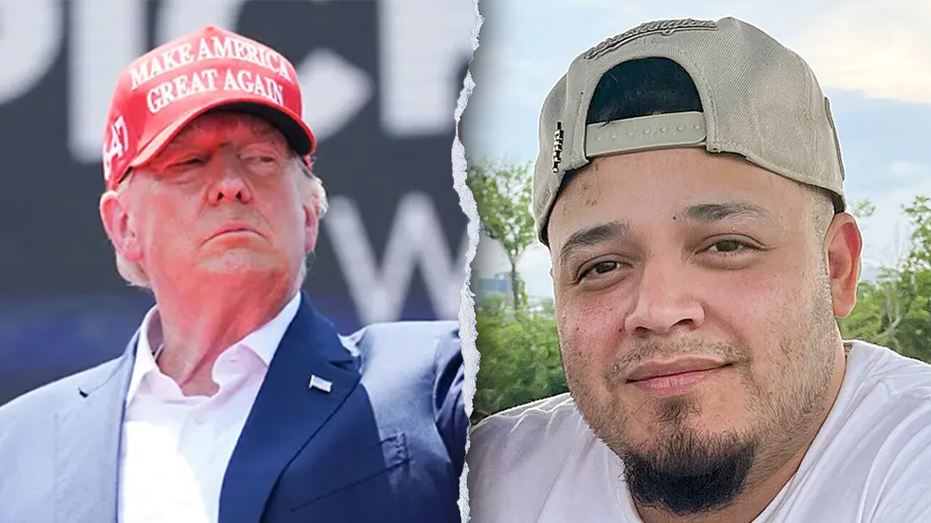President Trump Reacts to Return of Alleged Gang Member Kilmar Abrego Garcia to the U.S.
President Trump condemns the return of alleged gang member Kilmar Abrego Garcia, promising courts will reveal his true nature.

President Donald Trump addressed the highly publicized return of Salvadoran national Kilmar Abrego Garcia, expressing little concern over the development and underscoring his confidence in the Department of Justice to prosecute the case. Speaking with reporters during a flight on Air Force One, the president described Abrego Garcia as "a bad guy" and maintained that the judicial process would reveal the extent of his alleged crimes.
"The DOJ made a decision," Trump stated, adding, "I think their decisions have been very, very good." The president attributed the situation to ongoing power struggles within the judiciary, suggesting that certain judges were attempting to override the executive branch. He added, "Frankly, we have to do something because the judges are trying to take the place of a president that won in a landslide. That's not supposed to be the way it is. So, I can see bringing him back. I could see. He's a bad guy."
Abrego Garcia, a 29-year-old illegal immigrant previously living in Maryland, was first deported by the administration in March to a high-security prison in El Salvador based on allegations tying him to the violent MS-13 gang. Despite his removal, a wave of pressure from Democratic lawmakers followed, advocating for his return and emphasizing his ties to the local community.
Attorney General Pam Bondi confirmed late Friday that Abrego Garcia had returned to the U.S. under custody and now faces federal criminal charges, including human smuggling and conspiracy. "A grand jury in the Middle District of Tennessee returned a sealed indictment charging him with alien smuggling and conspiracy," Bondi announced, emphasizing that the charges arise from a broad, long-running operation.
According to the indictment, Abrego Garcia allegedly played a "significant role" in a sophisticated human trafficking ring extending almost ten years. Authorities outlined that he was responsible for making at least 100 smuggling trips, transporting women, children, and individuals with known gang affiliations into and throughout the United States.
Further evidence emerged from a 2022 traffic stop in Tennessee, in which Abrego Garcia was found transporting eight other men and carrying $1,400 in cash. Law enforcement records indicated that checks on his identity resulted in an immediate gang or terrorism alert. Immigration authorities were contacted but did not respond at the time, leaving questions about procedural breakdowns.
Despite efforts from Democratic officials to portray Abrego Garcia as a "family man," court documents paint a decidedly different picture. His wife, Jennifer Vasquez Sura, filed for a protective order against him in 2020, citing not only verbal and physical abuse directed at herself but also mental abuse inflicted on her children. The protective order sought to keep Abrego Garcia away from his family, raising further concerns over his background.
Senator Chris Van Hollen, D-Md., one of the most vocal lawmakers in support of Abrego Garcia’s return, criticized the administration's earlier actions, stating, "For months the Trump Administration flouted the Supreme Court and our Constitution. Today, they appear to have finally relented to our demands for compliance with court orders and with the due process rights afforded to everyone in the United States."
As the legal proceedings begin to unfold, the case is expected to draw further scrutiny over the intersection of immigration policy, public safety, and the judicial system’s role in high-profile deportations. With new evidence and serious charges brought to light, the debate over Abrego Garcia’s return is likely to remain a flashpoint in the ongoing national conversation on immigration enforcement and the criminal justice process.




